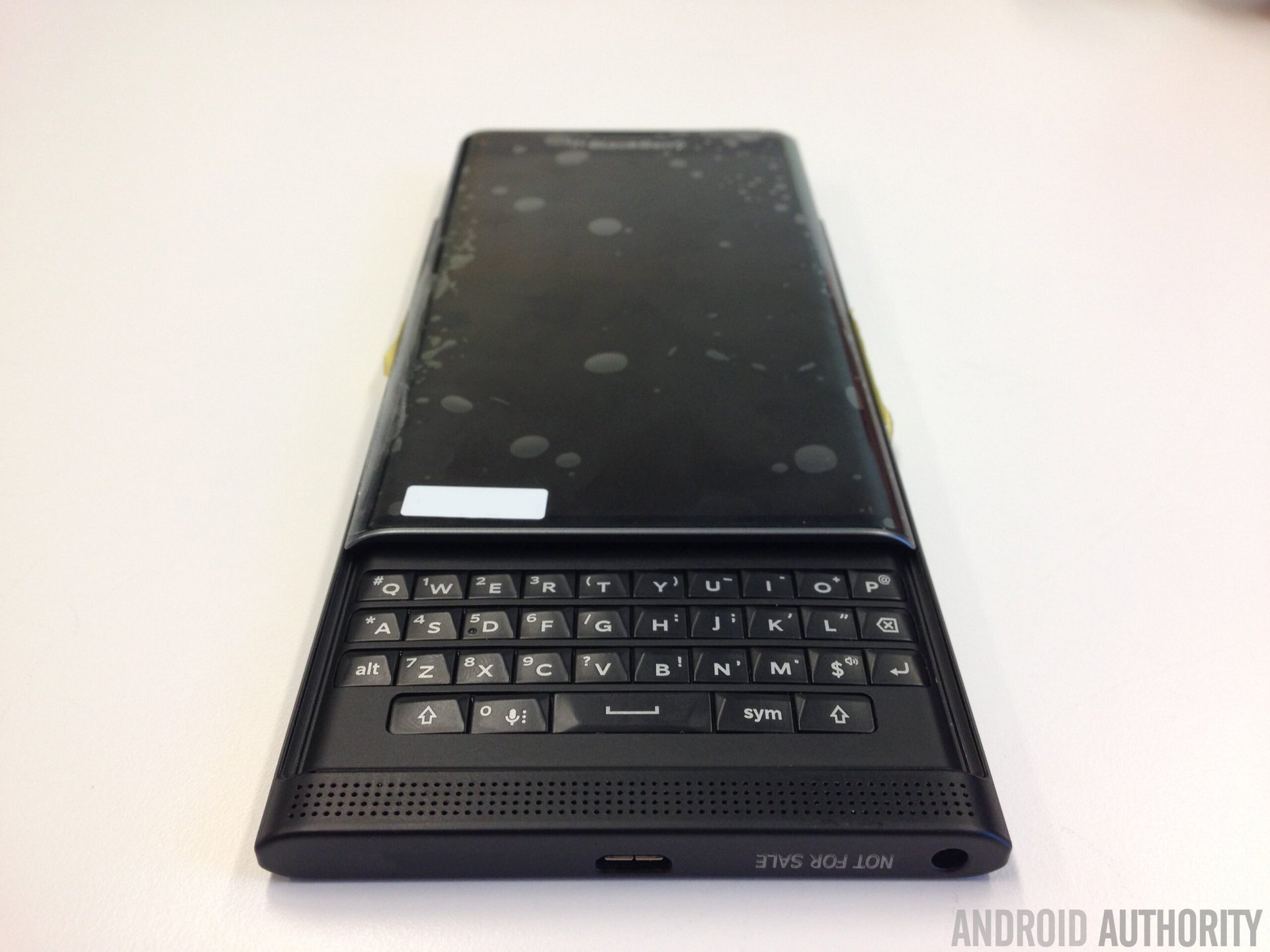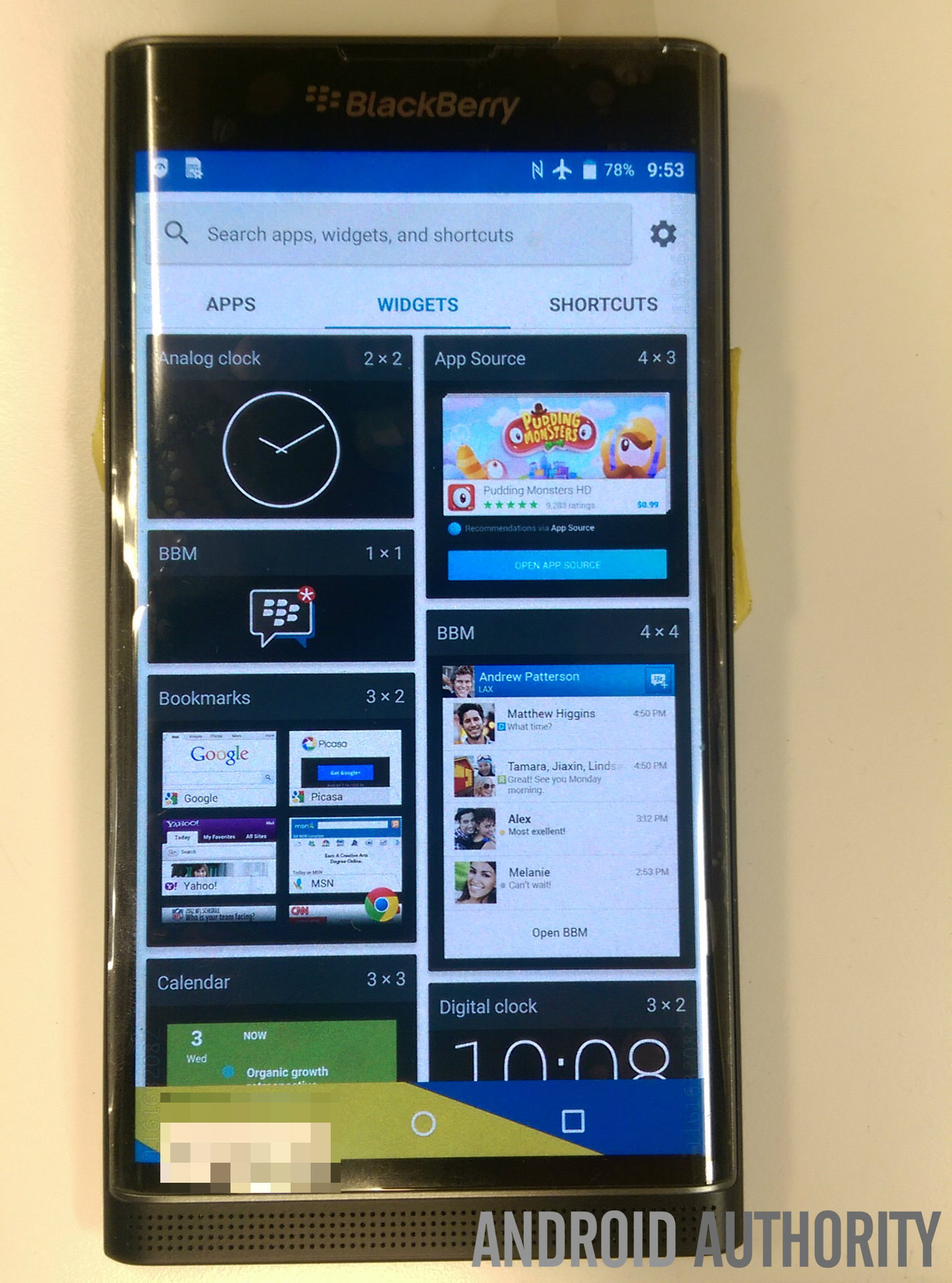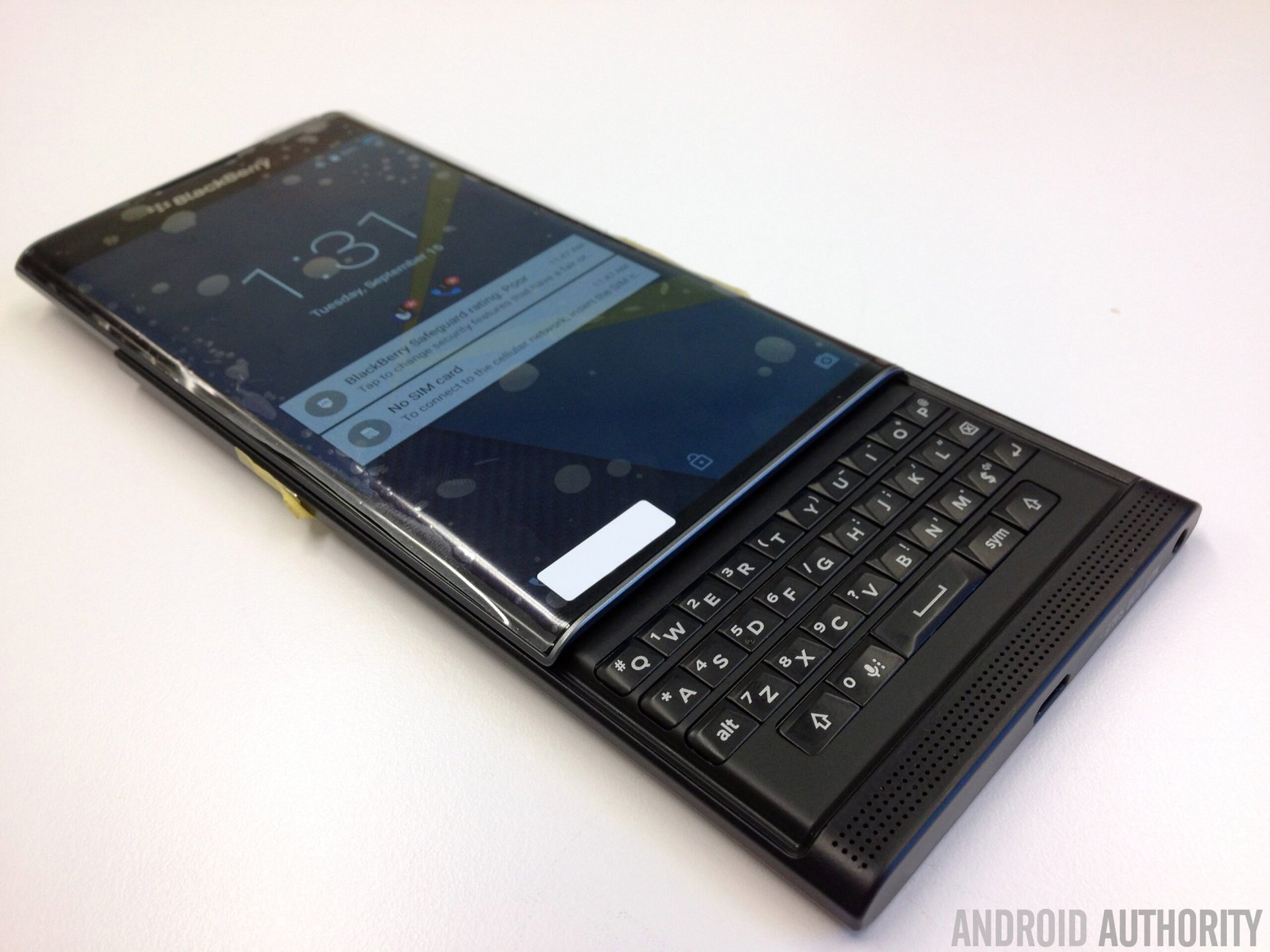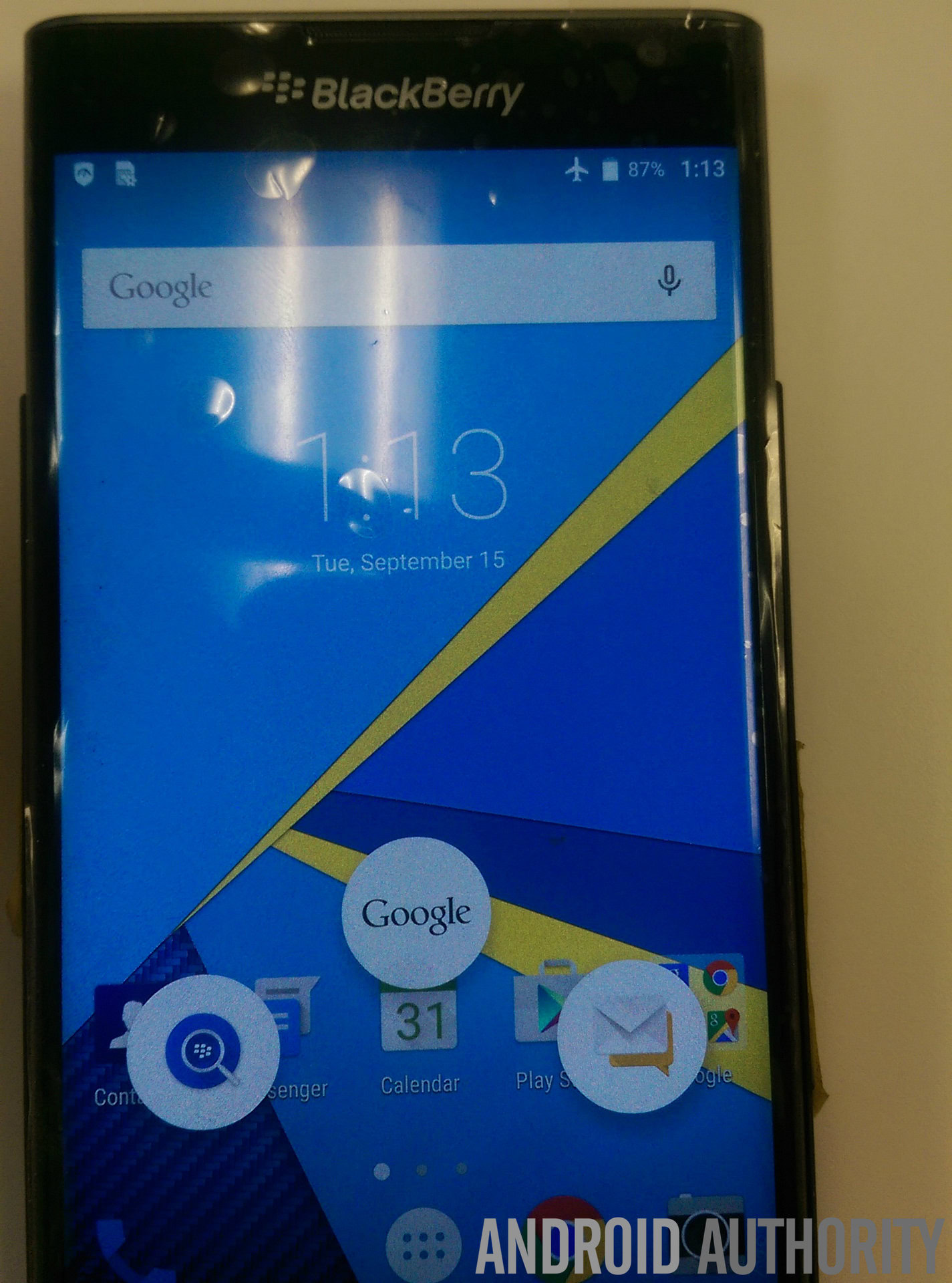Affiliate links on Android Authority may earn us a commission. Learn more.
In his own words: BlackBerry CEO John Chen explains why his company's Priv is all about Android

The mysterious BlackBerry Priv nee BlackBerry Venice nee BlackBerry Slider is a curious creation: unveiled roughly half a year ago at MWC, it was assumed to be a new product for the company’s homegrown OS. Whether a later change or an all-along intention, the device leaked somewhat later under the working title “Venice” and was depicted as clearly running on Android. In recent weeks, we had an exclusive hands on expose and shortlay after a full-on video was leaked, along with a possible final name: Priv. Today it all became official. Still, the product is only half the story, for the real tale to tell is that of the behind-the-scenes scenario that led to launch such a creation.
BlackBerry CEO John Chen took to CNBC earlier today to personally scribe a piece on his company’s dramatic new decision. He first addressed the daring new device itself, stating that, “With Priv, our commitment is to continue to provide confidence that your privacy and productivity come first. In today’s hectic world, where cyber threats are real for everyone, BlackBerry is making sure that our products invoke this mantra that your privacy is your privilege.”
He continues, touching a bit on the nostalgia that so many hold dear to this day: “Priv will be the solution for smartphone users who are learning daily of the lack of privacy they have on their current devices. Priv will be the answer for former BlackBerry users who miss the physical keyboard but needed apps. And, we’re responding to current — and prospective — BlackBerry users who need it all: choice, innovation, security, privacy and productivity.”

Despite the fact that the Android enthusiast, if not tech community at large, is inevitable well aware of the major change at hand, Mr. Chen then addressed those presumably more allied within the BlackBerry community: “There will be a camp that reacts to this news with surprise, while others will see how, over the past two years, we’ve laid the groundwork to make this possible. It began with honing in on our DNA of security, privacy and productivity, and then bringing that heritage and continued innovation to other operating systems.”
As expected, he formally addressed the issue of why the company would pull an “about face” and expand to a platform that, while supportive of Android app side-loading in recent years, was still largely seen as a “competitor”, at least in a sense: “Launching an Android device is a tremendous new market opportunity as we continue our focus on building a cross-platform strategy. It’s a terrific proposition for dedicated Android users who are seeking greater productivity and powerful privacy features. And we are advancing our own platform, redefining the expectations of mobility in today’s age of risk and cybercrime so that we can serve customers even better. ”

Perhaps the issue of greatest importance to fans of BlackBerry itself however, was just what will happen to the company’s internal OS: would it be phased out as Nokia did with Symbian, or will it remain in play for the future: “I want to be clear: fans of BlackBerry’s workhorse BlackBerry 10 smartphones can continue to depend on us, and we appreciate their commitment. We will be releasing new updates of this powerful OS in the upcoming year. There is continued demand for our flagship BlackBerry 10 devices like BlackBerry Passport and Classic by consumers, enterprises and regulated industries. These devices — combined with our network — offer peerless security and productivity advantages. They’re not going away.”
Mr. Chen then ended his piece with a very optimistic, confident closing: “For nearly two years now, I’ve been telling you how we would transform the iconic BlackBerry brand into a true software powerhouse. We’re doing this by integrating our strength in building the most secure software and network and embedding it into a one-of-a-kind form factor. BlackBerry is a new company. We have new life. And we plan to continue to surprise our customers and the industry. This is just the latest move along that path.”
Acute Analysis

Mr. Chen’s piece largely confirms what had been either rumored, leaked, or assumed for some time now, however his alluding to the fact that BlackBerry would continue to support and (presumably) create and manufacture new “internal” hardware should offer a sign of relief to those users who are still wholly committed and invested in the BlackBerry universe and unwilling to go full-Android. With that said however, an almost paradoxical question arises: If BlackBerry is going to be making Android devices that support its secure services and business-related software platform, why would anyone need to purchase traditional BB10 hardware?
If BlackBerry is going to be making Android devices that support its secure services and business-related software platform, why would anyone need to purchase traditional BB10 hardware?
Therein lies a rather curious problem for the company: if the Priv takes off, along with the various other devices rumored to be arriving on Android in the future, what motivation would there truly be to continue development of BlackBerry’s own OS? Android has unlimitedly more applications and is managed by Google, thus BlackBerry need not expend additional resources on BB10 and its potential follow-ups. Android already has BlackBerry Messenger. Despite the cheerful, ambitious nature of Mr. Chen’s words, it’s the company’s own OS development team that is probably feeling the heat more than ever before. Whereas there may have been a general fear of layoff due to declining company revenue in recent times, their jobs are arguably on the line now that the Android “invader” is perched to take control.
One might also want to notice that Mr. Chen’s piece made no mention whatsoever of the company’s frightening fiscal performance as of late. Specifically, BlackBerry announced revenues of $490 million in Q2 FY2016, a little over half the same period last year. Clearly he intends the Priv to be the panacea for this malady, however even the slightest mention of such performance might cast a shadow on the potential and relevance of the device in question, though it would most certainly highlight the sheer significance at this stage.
Wrap Up

Without a doubt, BlackBerry is a new company. The partnership with Android is, in an of itself, a fantastic opportunity for future success. The fact that the first product of such a partnership is going to be a device as eye-catching and unique as the Priv only makes the icing that much sweeter. Instead of getting a re-branded Passport or BlackBerry Classic, the company is offering a slider with dual curved edges (and presumably an OLED display to allow it) that sets it apart from basically any typical Android device. Even the T9-input “feature phone” type devices that continue to crop up in Japan, China, Korea and select other Asian territories are lacking a full-on keyboard.
It’s truly curious to consider just what BlackBerry would be like today had its founding fathers not decided to resign, arguably far later than many would have preferred as is. Whatever the case may be however, the Priv looks to be the gateway to the company’s path for progress, and in return, Android’s true advancement into the secure workplace scenario.